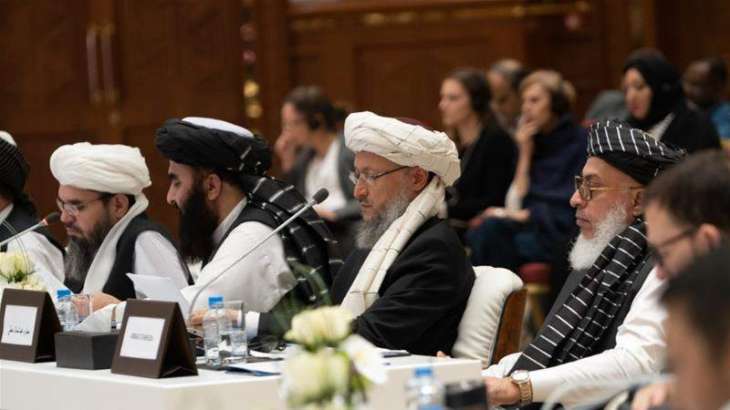Afghan religious scholars believe that the continuation of the Taliban's war is not in line with Islamic values and the Shariah law following the signing of a peace agreement in Doha between the Taliban and the US that envisages the withdrawal of foreign troops from Afghanistan and paves the way for the intra-Afghan peace dialogue
KABUL (Pakistan Point News / Sputnik - 20th March, 2020) Afghan religious scholars believe that the continuation of the Taliban's war is not in line with Islamic values and the Shariah law following the signing of a peace agreement in Doha between the Taliban and the US that envisages the withdrawal of foreign troops from Afghanistan and paves the way for the intra-Afghan peace dialogue.
A Sputnik correspondent traveled to southeastern Paktia province of Afghanistan and spoke to religious scholars and people there about the current situation in the conflict-torn country.
Armed clashes continue in Afghanistan despite the signing of a peace deal between the US and Taliban on February 29 that guaranteed the withdrawal of US troops from the country, in exchange for the militant organization's agreement to enter into talks with the Afghan government. The Taliban also must ensure that the country does not become a safe haven for terrorists. The intra-Afghan talks were scheduled to begin on March 10, but this did not happened due to Kabul-Taliban differences over the prisoner release precondition.
Prior to signing the peace agreement, the Afghan government and the Taliban agreed on a week-long reduced violence period and stopped military operations to facilitate the peace process.
Afghans are concerned about the fact that the Taliban war continues, despite the fact that the issue of the foreign troops presence is the country was solved.
"After the agreement with the foreign forces that the Taliban will not attack them, why should the war continue between the Afghans. Killing of Afghan Muslims is not in our religion," religious scholar Syed Nabi Khairkhwa told Sputnik.
Another religious scholar, Qaribullah Saeed, called on the Taliban to stop hostilities and focus on peace efforts.
"Now that the opportunity for peace is provided, attacks on foreigners have been stopped, the attacks on Afghan forces are not valid in islam and the continuation of war between the Afghans is not a Shariah justification," Saeed said.
Along with religious scholars, Paktia civil activists also think on how to launch a peace process and bring people away from the war.
"We hold various meetings to inform people about a peaceful life and to explain the disadvantages of the ongoing violence. Fortunately the intensity of the war has now diminished and it is expected that this will happen. Peace talks will start and the war will end," activist Hemat Ahmadzai told Sputnik.
Civil activist Malala Ahmadzai expressed concern in a conversation with Sputnik about women's education rights that will be on the agenda of the peace process.
"The most sacrificed in the war are women. Women are more insisting on peace, but a peace where women's rights are protected, women should study and work and the Taliban should recognize that women are a fundamental part of our society," Ahmadazi said.
Ordinary people in Afghanistan are more and more longing for peace and want to do be able to do business without disruption, as illustrated by Sayed Noor Mohammad Shah, a shopkeeper in Gardez, the capital of Paktia.
"When the ceasefire or week of reduced violence took place, the intensity of war has reduced, my business and every business in this market has improved, almost one-to-two bargains are sold and profits have doubled. May God bring lasting peace," he said.
Paktia Governor Shamim Katawazia told Sputnik that the government prioritizes peace and that religious scholars and local leaders are important to the peace process.
"Peace is our priority and war is our compulsion, we intend for lasting peace, and practical steps have been taken in this regard. The cooperation and contribution of the people is important for achieving peace," Katwazi said.
Paktia is one of the provinces in Afghanistan where there is relatively high level of security compared to southern and northern provinces, mainly because local people cooperate with the government and the activities of the armed groups are lower than in other provinces.




